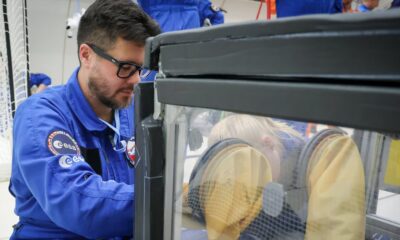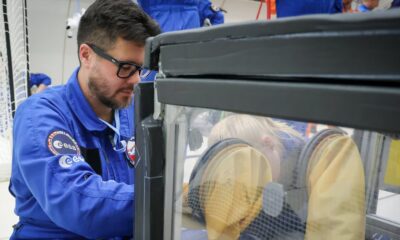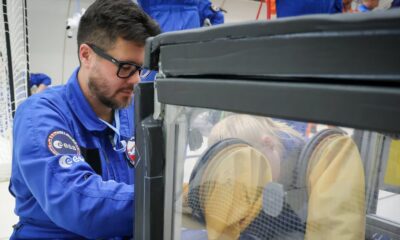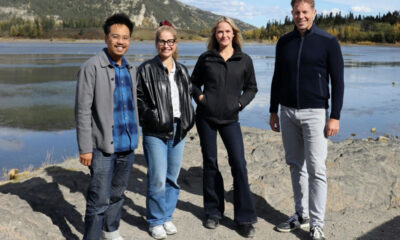Science
B.C. Anesthesiologist Explores Anesthetic Use in Zero Gravity
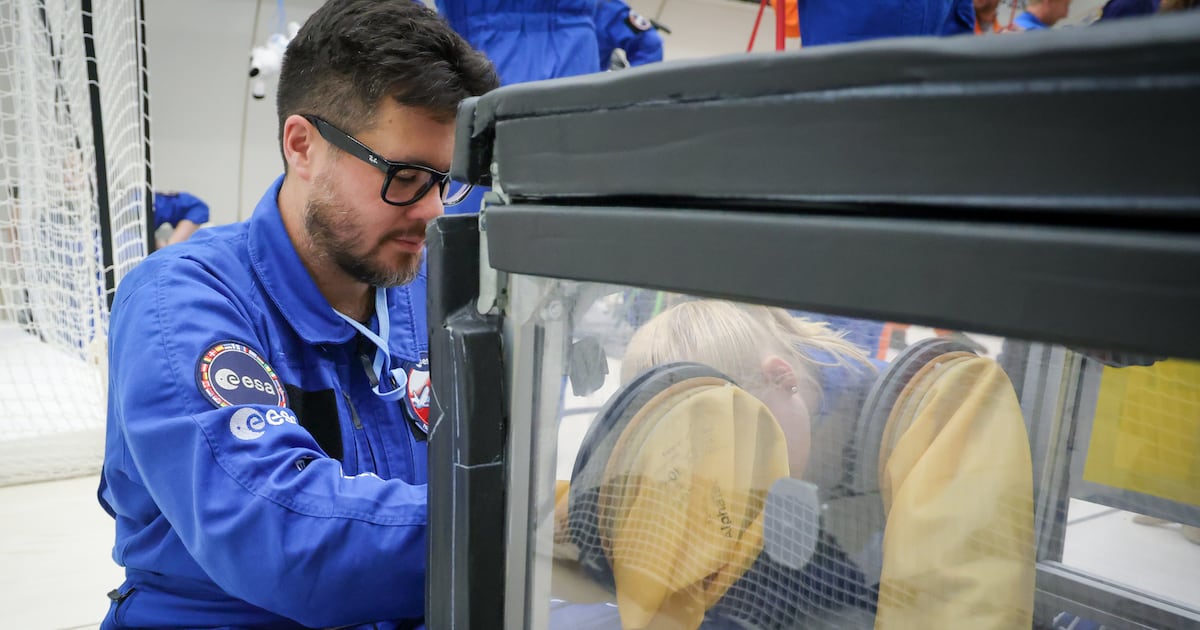
Anesthesiologist Dr. Matthew Turnock and his team have embarked on a groundbreaking research project exploring how anesthetic drugs behave in microgravity environments. This unique study, funded by the Canadian Space Agency, involved experiencing real zero gravity aboard an Airbus A310, offering insights that could impact future medical practices in space.
During their research, which took place at the Eagle Ridge and Royal Columbian hospitals and later transitioned to the air, Turnock described the experience as “out of this world.” He remarked, “It was a blast, for sure. Very intense, but a lot of fun.” The team, which included fellow anesthesiologists Dr. Alex Suen and Dr. Siobhan Wagner, as well as Adrian Tabari, a medical student from the University of British Columbia, conducted their experiments in a setting that simulated conditions similar to those astronauts face in space.
Understanding how anesthetics behave in a weightless environment is crucial for the safety of potential space missions. “In space, giving an anesthetic is challenging because of the space and volume requirements,” explained Turnock. He highlighted the risks associated with inhaled anesthetics, noting that an unintended disconnection of the delivery system could anesthetize an entire spacecraft crew. This scenario poses significant safety concerns for both astronauts and mission integrity.
To investigate these challenges, the team utilized CT images to create a model of a spinal canal filled with simulated spinal fluid. Turnock noted the potential for anesthetic medications to ascend to the brain, a phenomenon known on Earth as a “high spinal.”
After developing their model, the team conducted experiments aboard the Airbus A310, where they experienced brief bouts of weightlessness. “Every time the aircraft crests that peak, you get about 25 seconds of zero gravity,” Turnock explained. This environment allowed them to test their hypothesis regarding anesthetic distribution in microgravity.
Their findings revealed unexpected results. “If we remove gravity, we hypothesized that the medication actually wouldn’t spread at all, which is what we found,” Turnock stated. The research indicated that the risk of anesthetics floating to the brain is likely overstated. Instead, the real concern lies in the medication not spreading sufficiently to be effective.
These insights open new avenues for further exploration in space medicine. Turnock expressed enthusiasm about the future, stating, “There are things we can investigate to perhaps promote the spread of medication.” This research not only contributes to the understanding of anesthetic behavior in microgravity but also raises further questions that must be addressed in future studies.
The collaboration among Turnock, Suen, Wagner, and Tabari marks a significant step forward in space medicine, highlighting the importance of interdisciplinary research in addressing the challenges of human health in space environments. As the team prepares for additional research, their work underscores the vital role of anesthesiology in ensuring the safety of astronauts during potentially critical medical procedures in the vastness of space.
-

 Politics2 weeks ago
Politics2 weeks agoSecwepemc First Nation Seeks Aboriginal Title Over Kamloops Area
-

 World4 months ago
World4 months agoScientists Unearth Ancient Antarctic Ice to Unlock Climate Secrets
-

 Entertainment4 months ago
Entertainment4 months agoTrump and McCormick to Announce $70 Billion Energy Investments
-

 Lifestyle4 months ago
Lifestyle4 months agoTransLink Launches Food Truck Program to Boost Revenue in Vancouver
-

 Science4 months ago
Science4 months agoFour Astronauts Return to Earth After International Space Station Mission
-

 Technology3 months ago
Technology3 months agoApple Notes Enhances Functionality with Markdown Support in macOS 26
-

 Top Stories1 month ago
Top Stories1 month agoUrgent Update: Fatal Crash on Highway 99 Claims Life of Pitt Meadows Man
-

 Sports4 months ago
Sports4 months agoSearch Underway for Missing Hunter Amid Hokkaido Bear Emergency
-

 Politics4 months ago
Politics4 months agoUkrainian Tennis Star Elina Svitolina Faces Death Threats Online
-

 Politics4 months ago
Politics4 months agoCarney Engages First Nations Leaders at Development Law Summit
-

 Lifestyle2 months ago
Lifestyle2 months agoManitoba’s Burger Champion Shines Again Amid Dining Innovations
-

 Technology4 months ago
Technology4 months agoFrosthaven Launches Early Access on July 31, 2025

